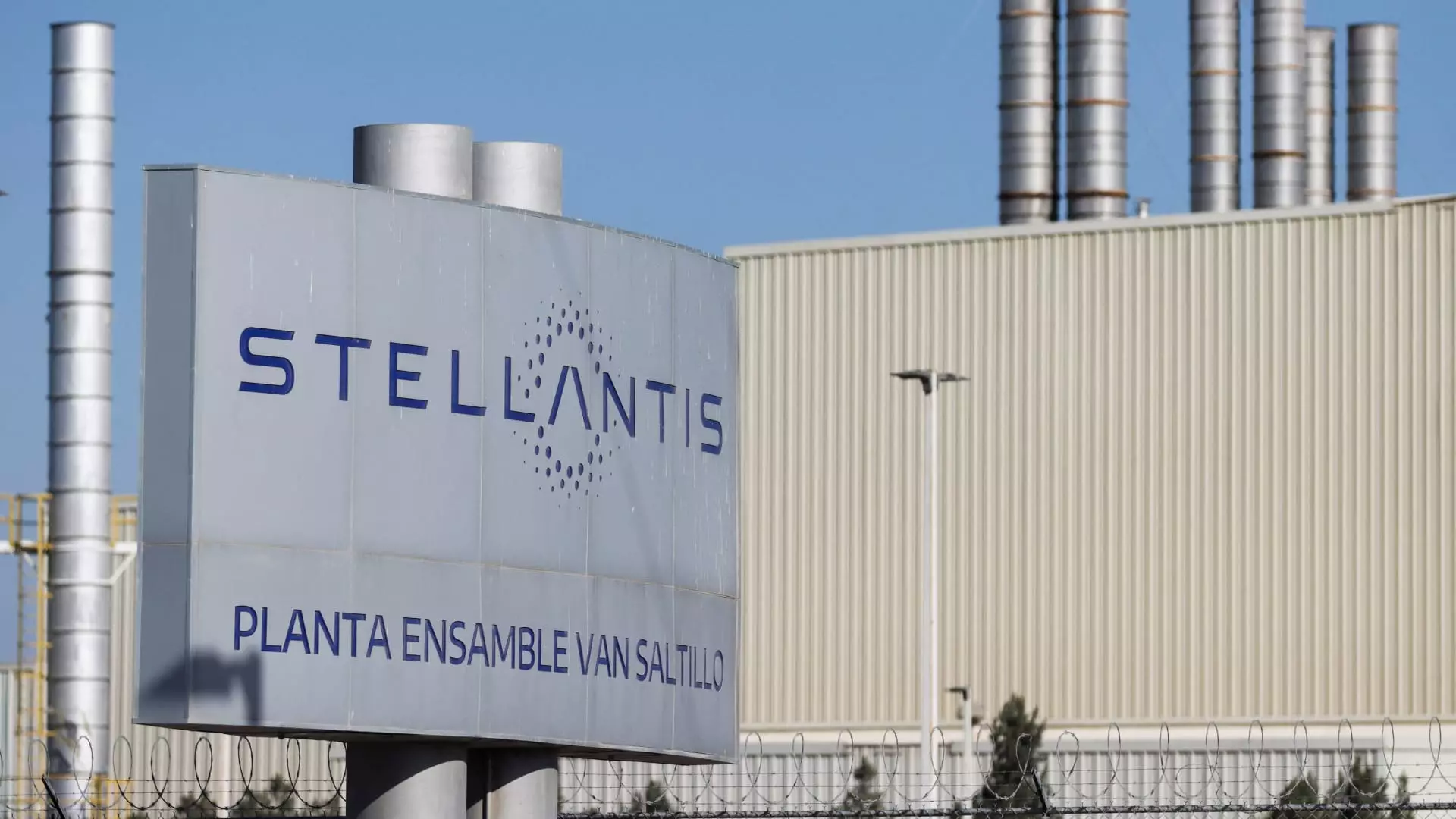As the financial arena reels from President Donald Trump’s latest tariff proclamations, the automotive sector feels the tremors acutely. Legacy carmakers like Stellantis, Ford, and General Motors are not just facing operational challenges—they are grappling with a fractured investor sentiment. Stellantis saw a steep 9% plunge, while Ford and GM also dug deep into the red with declines of 3% and 5%, respectively. Such volatility raises critical questions: Are investors blindly reacting to headlines, or is there a more profound understanding of the impact these tariffs will have on American jobs and innovation?
If we analyze this situation through a center-right lens, we must ask how these tariffs align with conservative economic principles. Traditionally, conservatives advocate for free markets and minimal government interference in economic activities. Yet here we are, facing an artificial economic barrier that distorts market dynamics and stifles ingenuity. For the automakers, suffering under the yoke of higher production costs and supply chain disruptions, it seems perplexing that a party known for promoting capitalism would impose tariffs that penalize both producers and consumers.
The Electric Vehicle Avalanche
Tesla, the poster child of U.S. innovation and electric vehicle technology, is yet another casualty. Following the news of Trump’s tariffs, Tesla’s stocks fell nearly 7%, marking a staggering drop of 40% in 2025 alone. What could have been a golden era for clean energy investments appears overshadowed by a mélange of supply chain woes and Elon Musk’s public persona. Musk’s politically charged tweets often alienate potential investors, leading analysts like Dan Ives to downgrade their price targets due to “self-created brand issues.”
Isn’t it ironic? America is poised to lead the electric revolution, yet governmental policies actively undermine that potential. The question remains whether the opportunities within the green economy can withstand the pressures of overreaching tariffs that only serve to inflate costs. The reality is, Trump’s tariffs appear to be a national misstep at a critical juncture for sustainable industry advancement.
Big Tech’s Downward Spiral
Similarly, the tech giants, which were formerly viewed as bulletproof, have begun to show cracks in their armor. The likes of Apple and Nvidia experienced declines of 4% and 6% due to fears surrounding production costs from these tariffs. When a government enacts tariffs, the ripple effect is unavoidable; major companies that rely on a global supply chain are forced to reconsider and recalibrate their operational strategies.
The crux of this dilemma lies in the fundamental principle that innovation thrives in an environment of open markets and healthy competition. Right now, raising tariffs disrupts that ecosystem, leaving companies scrambling to navigate the increased costs that will inevitably trickle down to consumers. This could cultivate a far less innovative environment, ultimately dashing the prospects for the very technological breakthroughs that the free market is so capable of yielding.
The Damaging Ripple Effects on Financial Institutions
The banking sector is not immune to the fallout, as demonstrated by the recent plummet in share prices across major banks like JPMorgan Chase and Goldman Sachs. CEO Jamie Dimon’s warnings about inflation resulting from the new tariffs stoked fears of an impending recession, which only compounded existing anxieties. The question arises: how does one reconcile the political rhetoric around economic nationalism with the practical realities of fiscal responsibility?
When financial institutions express concern over economic policy, it often serves as a wake-up call. These are not just market fluctuations; they are indicators that the economic landscape may be shifting toward stagnation. Center-right philosophies value stability and confidence in markets—elements increasingly compromised under the weight of punitive tariffs.
The Global Entanglement: Lost Opportunities
For companies both abroad and at home, the tariffs represent a precarious state of affairs. Chinese ADRs listed on U.S. exchanges, such as Alibaba and JD.com, recorded losses of over 8%, signaling fears of a trade war’s broader implications. Such vulnerabilities reveal the interconnected nature of modern economies. Policymakers should be wary; every time trade barriers rise, opportunities plummet—not just for businesses but for the economy as a whole.
The reality is that a trade war has far-reaching consequences that do not just hurt foreign entities but also stymie U.S. growth potential. For the center-right, there ought to be a renewed focus on diplomacy and negotiation rather than tariffs that simply fire bullets at our own feet.
A Silver Lining: Pocket of Resilience
In the midst of this tumult, Dollar Tree emerged as an outlier, appreciating nearly 1% following an upgrade by Citi. Dubbed a “dark horse winner” in the ongoing trade turmoil, the retailer represents not just resilience but also an opportunity to reassess how businesses can thrive even amidst adverse conditions.
Isn’t it invigorating to witness a company rise above the turmoil? In an increasingly polarized atmosphere, perhaps identifying and nurturing such resilient entities could be a lighthouse amidst the storm.
As we navigate these unpredictable waters, the dialogue must extend beyond financial markets; we should challenge the political motives steering these decisions and contemplate the ramifications on genuine economic growth. Ignoring this reality will only risk further entrenching discontent among average Americans caught in the crossfire of misguided tariffs.

